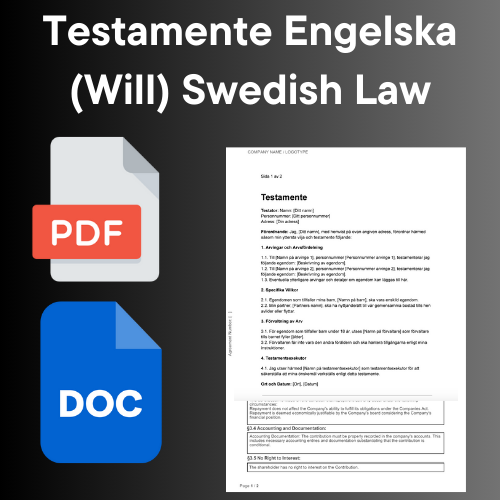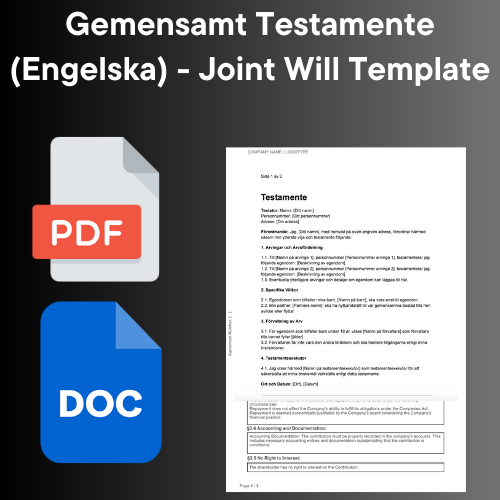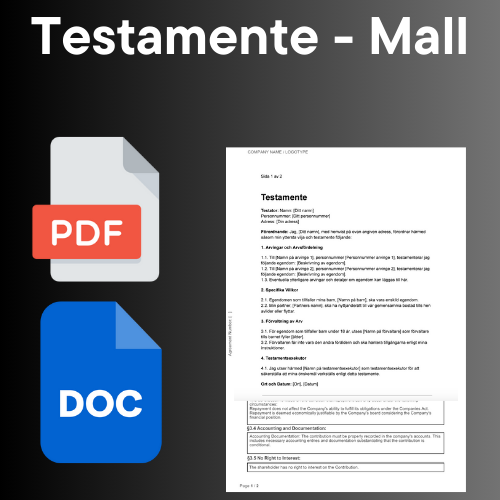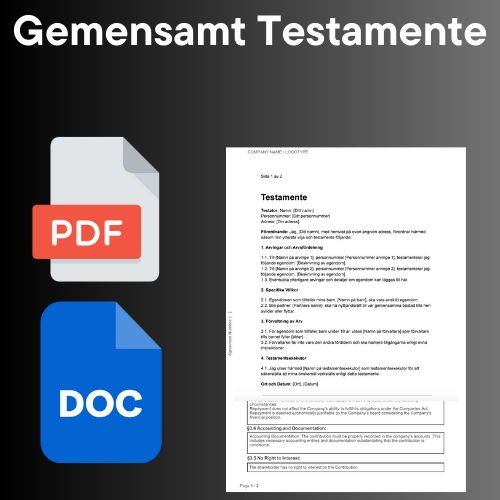When is a will served?
Share
Table of contents
What Does Service of a Will Mean?
Service of a will is the process by which the will is formally handed over to heirs and other interested parties. This means that the will becomes known to everyone who has a legal interest in the estate, including heirs, universal legatees and sometimes even creditors. The purpose of service is to ensure that all parties involved are informed about the contents of the will and are given the opportunity to act if they believe there are grounds to question the will.
When Do You Get Served with a Will?
The time when a will is served varies depending on various factors, including how quickly the estate is handled and whether there are any complications that need to be resolved before service can take place. Generally speaking, the service takes place after an estate inventory has been made, and the will has been submitted to the Tax Agency.
After Completion of the Estate Record
The probate is a legal document in which the assets and liabilities of the deceased are mapped. This process must be completed before the will can be served, as the probate affects how the inheritance will be distributed. When the estate register is completed and submitted to the Tax Agency, it is time to serve the will.
Timeframes for Service
The legislation does not specify a precise time frame for when a will must be served, but it should be done within a reasonable time after probate. If it takes too long without the will being served, the heirs can demand that it be done. It is important to note that service can take place earlier if it is necessary to manage the estate's assets or if there are special reasons to speed up the process.
How does the service take place?
The service of a will often takes place by sending a copy of the will to all parties concerned. This process can be carried out by the person administering the estate, such as an executor, or by a lawyer. It is important that the service is done in a formal and correct way to avoid legal problems later.
Formal Requirements for Service
For service to be valid, certain formal requirements must be met. For example, the will must be signed by two witnesses and these witnesses must be present at the same time when the will is signed by the testator. If these requirements are not met, the will may be declared invalid, which means that the service will also be invalid.
What Happens After Service?
When the will is served, the heirs and other interested parties have the opportunity to challenge the will if they believe it is invalid for any reason. This can be done by submitting a complaint to the district court. It is important to act quickly as there is a deadline for filing such an application, usually six months from the service of the will.
Blames of Testament
If an heir or other party wishes to challenge the will, they must submit a challenge application to the district court within six months of service. The grounds for probating a will can vary, but common reasons include that the will was drawn up under duress, that the testator was not of sound mind, or that the will does not meet the formal requirements.
The Importance of Professional Help
Managing a will can be complicated, especially if there are ambiguities or disputes surrounding the will. Therefore, it is often wise to seek professional help, either from a lawyer or an executor. These experts can help ensure that service is done correctly and that all rights and obligations are respected during the process.
Benefits of Using Document Templates
For those who need to create legal documents, such as a will or estate, using professionally designed document templates can be of great help. These templates are created to meet all legal requirements and can be customized to your specific needs, making it easier to ensure everything is done right from the start.
Conclusion
Serving a will is a central part of probate and requires following specific laws and procedures to ensure that all parties involved are properly informed. By understanding when and how service occurs, as well as what rights and obligations exist, you can navigate this process with greater confidence and avoid potential disputes.
Using document templates and seeking professional help when needed can make the process smoother and reduce the risk of errors or misunderstandings. If you are faced with dealing with a will or succession issues, we recommend that you familiarize yourself with the rules and consider using professional document templates to ensure that everything is handled according to the requirements of the law.




